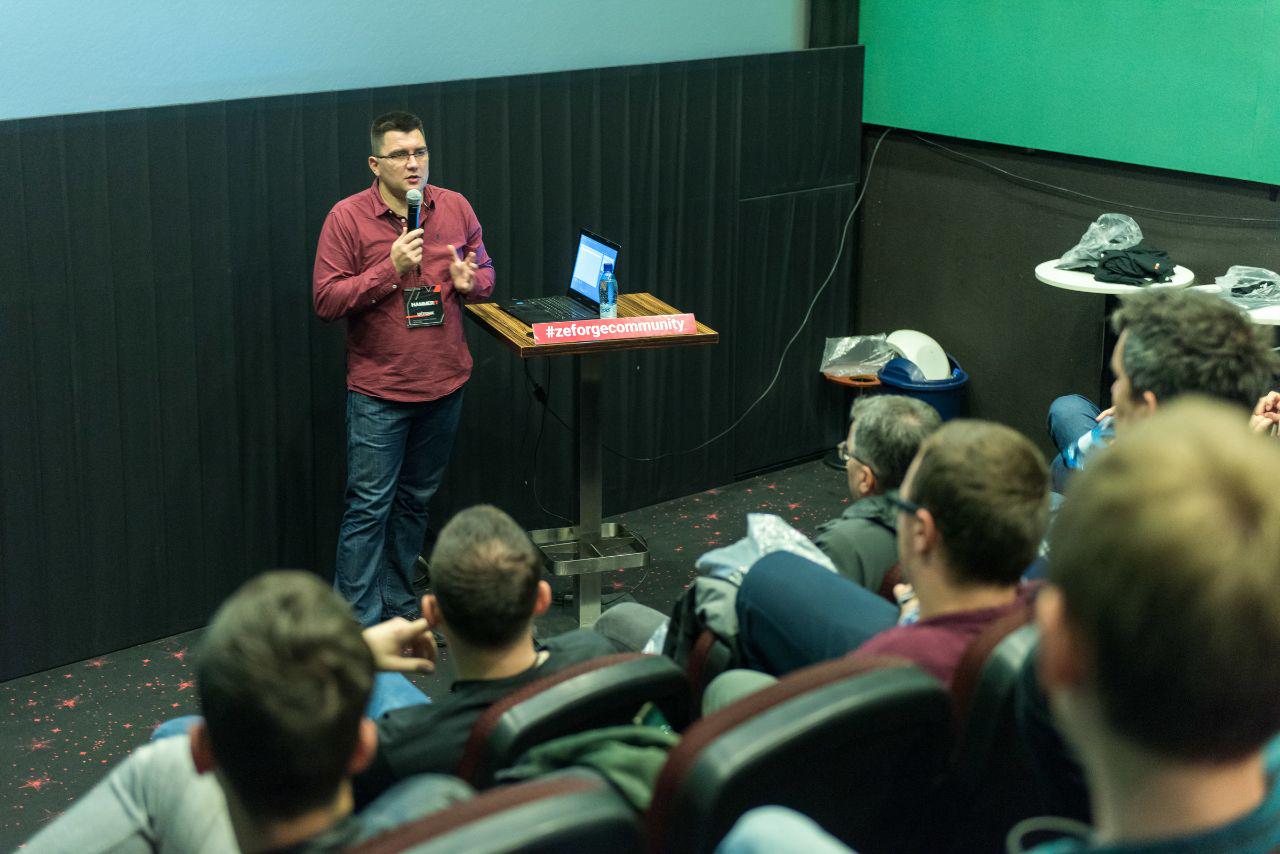I learned to type during the times when IRC was at its peak, or at least it was in the country where I started using it. Those were the times when the sound of modems was about the only thing that was breaking the silence during the late nights. I was young, and phone bills were quite high, ultimately making those that were paying them quite unhappy. The fact they couldn't make a phone call when they needed it, as the lines were quite often busy, didn't help either.
During those times that I can recall quite clearly from this perspective, it wasn't important how you type. It was all about how fast you type. At the time schools were not teaching how to touch type, and I am quite sure they still don't. Back then, when typing “age/sex/location” as fast as possible was one of the most important things to do, I forged my typing habits.
Typing improved to the point, it wasn't slow, and on the contrary, I would say that it was reasonably fast for the things that I was doing back then.
As it does, time passed, and while the things were changing, experience gained, my typing habits mostly stayed the same. It was like that for more than a decade, and I never took the time to change some of those habits significantly. “If it ain't broken, don't fix it,” they say.
Typing skills gained over the decade were serving their purpose – I was doing the work that was expected of me, things were moving in the right direction and pool of time for such thing as improving typing was rapidly shrinking. First, there was college, the time where you actively pretend that you are quite busy because you don't know what busy means. Then you get employed and realize what it means to be busy. Later, you get married and get kids, and your life fundamentally changes. From that perspective, you remember that kid that was sitting in front of a computer, chatting with random people, with a grin on your face remembering how all of it was innocent.
Resolutions to learn Dvorak or Colemak came and went but they never realized. They crossed my mind on multiple occasions, but there were more pressing things that took precedence and, quite honestly, while being a quite fancy thing to do, most people never do it. The reason, I would say, is quite simple: It is hard to break old habits.
Almost decade and a half after I learned to type the way I did while sitting and listening to a university lecture, that could have been objectively more interesting than it was, I decided to do something about it. Using one of many web portals that are aimed at teaching how to properly touch type (I recommend registering and using typingclub.com) I started from scratch and began from first exercise (which is the lecture on how to properly hold your fingers on the keyboard).
Progress appeared slow. I remember the majority of my attempts to switch to the correct way of touch typing after covering all the lower case letters on the keyboard. It was the painful experience, but I persisted. I think this could have negative productivity impact for a short period, but if you have reasonable management, as I did at the time when I was doing this, you won't have problems.
There is a small chance someone is going to notice your attempts to improve your typing skills. Reasonable management is usually all for advancement (and their objective should be your advancement as that is what they should measure against), and in the worst case scenario you will be required to drop it at work, but you can always pick it up at home. Therefore, there is no real impact of doing this, or at least there was no real negative impact on me.
As I was progressing with the exercises, besides the apparent effect of getting better and faster at touch typing I noticed two other things that are worth mentioning. First, I am not some masochist, but I saw that the more I was exercising more I enjoyed the experience. I think it also helped when I was under stress. Logically, time spent doing those exercises increased, and results started being obvious.
However, the effect that I was most surprised about was the fact that breaking old habits is not that hard. Moreover, this particular habit was something that was forged over the period of a decade. What previously felt like a long time of struggle while learning something new turned out to be just a few weeks of practicing where I did exercises for about one hour on average, daily. In a just short period, the old habit was gone entirely, and at this stage, I couldn't even imagine going back to the way I used to type.
That got me thinking. If it was that easy to break decade or more old habit, what other habits could we break? How often do we limit our potential just because something appears to be difficult or hard? We very often underestimate our potential to improve and learn new things.
Learning how to touch type accurately, not only improved my workflow or speed at which I type (which was never the problem), it illuminated the fact that we can quite quickly, with almost minimal effort, improve all the aspects of our lives that we take as hard or impossible to change.

